Baidu SEO Guide For Travel Companies and Tourism
Are you a travel company struggling to reach Chinese tourists online? If so, you’re not alone. The online travel market in China is booming, and Baidu, the country’s leading search engine, holds the key to connecting with this massive audience.
After conducting extensive research and gathering expert insights, we’re here to guide you through the ins and outs of Baidu SEO for travel companies and tourism. Get ready to unlock the secrets of reaching Chinese tourists like never before!
Overview of Baidu, China’s leading search engine
Baidu is the top search engine in China, surpassing even Google in popularity and market share. With billions of searches conducted on its platform every month, Baidu dominates the Chinese search market.
It’s often referred to as the “Chinese Google” because of its dominance and influence. In fact, as of 2023, Baidu holds a staggering 62.94% of China’s search engine market share, making it the fourth most consulted website globally.
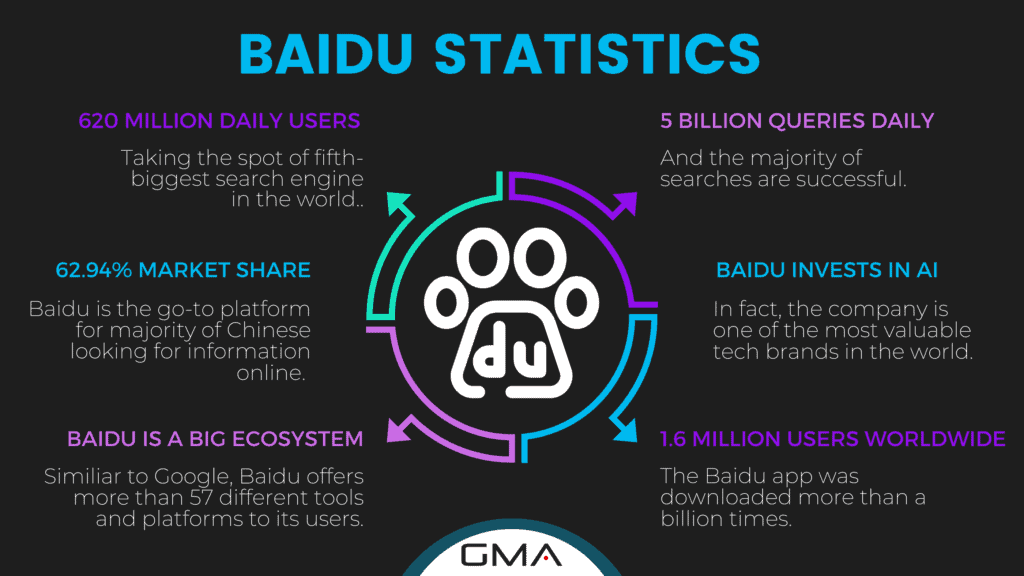
Founded in 2000, Baidu started off as a search engine platform and later incorporated artificial intelligence technology in 2010 to enhance content discovery.
Differences between Baidu and Google SERPs
Here’s a high-level comparison to illustrate the differences between two platforms, so that you get an idea of what Baidu is.
| Factors | Baidu | |
|---|---|---|
| Market Focus | Primarily Chinese market with over 70% market share in China | Global focus, dominating search engine market worldwide |
| Content Updates | Places more emphasis on content updates, making regularly updated content crucial for SEO | Updates are important but not as frequent as Baidu |
| Ranking Algorithm | Unique ranking algorithm, requiring specific SEO tactics tailored for Baidu | Well-known and widely studied algorithm, with many SEO tactics known to work well |
| Language | Primarily indexes and ranks content in Simplified Chinese, making localization and translation essential | Global reach allows indexing and ranking of content in many languages |
With this understanding, you can appreciate why a different approach is required for Baidu SEO. This should guide and inform your decision-making as you strategize for the Chinese market.
Baidu’s Trust System and Algorithm
Baidu’s trust system and algorithm are key factors to consider when understanding the Baidu search market and optimizing SEO strategies for travel companies and tourism. Unlike Google, Baidu’s algorithm is believed to have a lag of 3 to 4 years in development.
This means that the ranking factors Baidu uses might not be as up-to-date or sophisticated as those used by other search engines. However, the trust system employed by Baidu plays a crucial role in determining the credibility and visibility of websites on its platform.
By analyzing factors such as website age, content quality, backlinks, and user behavior, Baidu assigns a trust score to each website. Higher trust scores can greatly improve a website’s chances of ranking higher in search results.

Cultural factors influencing search behavior in China
Chinese users have unique search behaviors that differ from those in other countries. They are more likely to use longer keyword phrases and place emphasis on localized content. Taking into account their preferences for specific terms or phrases can significantly enhance your website’s visibility among Chinese users.
Furthermore, tailoring your content to align with the value systems and cultural expectations of Chinese consumers will make it more appealing to them.
Language barriers are another important consideration when optimizing for Baidu SEO. The majority of Chinese internet users prefer searching in their native language (Mandarin), which means translating and localizing keywords and content is essential for capturing their attention.
How to Optimize Travel Websites for Baidu?
To optimize travel websites for Baidu, it is crucial to focus on localization, and creating content tailored to the Chinese audience. Additionally, mobile optimization and integration with popular Chinese social media platforms like WeChat are essential for reaching a larger audience.
Localization and language processing are the key
Localization involves adapting your website and content to resonate with the Chinese audience, while language processing ensures that your message is accurately translated.
By doing so, you can enhance user engagement and improve brand visibility among Chinese consumers. Research shows that Chinese consumers prefer content in their native language, making localization essential for attracting their attention and boosting sales.
Additionally, having a strong localized presence on social media platforms further enhances your chances of success in the highly competitive travel industry in China. So remember, by prioritizing localization and language processing, you can effectively tap into the immense potential of the Chinese market and stay ahead of your competitors.
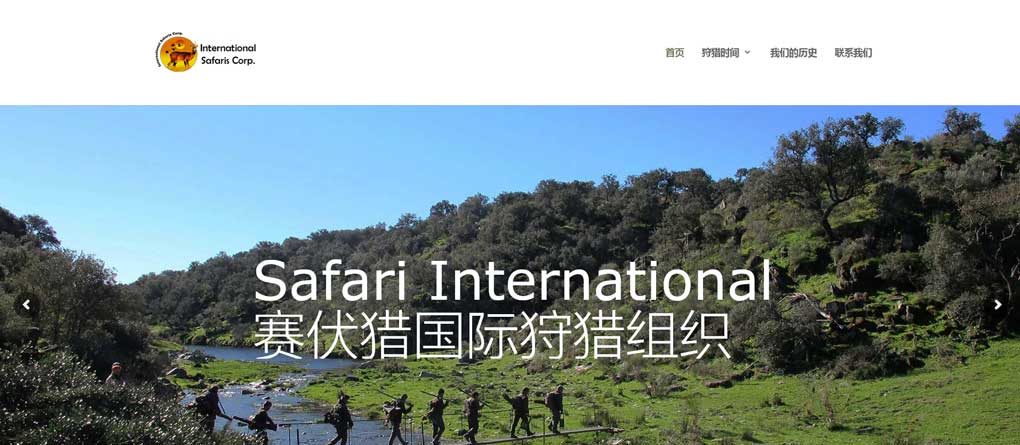
Use Baidu properties such as Baidu Maps and Baidu Baike
We highly recommend utilizing Baidu properties like Baidu Maps and Baidu Baike to optimize your travel website for Baidu. Here are some key benefits of utilizing these Baidu properties:
Increase local user targeting
Optimizing your travel website for Baidu Maps can attract local users who are searching for travel information in specific locations. This helps you target the right audience and increase your chances of conversion.
Enhance credibility and visibility
By optimizing your travel website for Baidu Baike, an online encyclopedia, you can enhance your credibility among Chinese users. This can significantly improve your online reputation and visibility within the Chinese market.
Improve online rankings
Optimizing your content for these Baidu properties can help boost your online rankings on the search engine results page (SERP). This means more visibility and higher chances of attracting organic traffic to your website.
Optimize online presence
Leveraging these Baidu properties helps enhance your overall online presence and SEO in China. It allows you to establish a strong brand image and gain recognition among your target audience, leading to increased customer trust and engagement.

Create and optimize content for the Chinese audience
Creating and optimizing content for the Chinese audience is crucial for travel companies targeting the Chinese market. Here are some key strategies to consider:
Incorporate keywords strategically
Conduct keyword research to identify popular search terms used by Chinese users. Use these keywords naturally throughout your content to improve its visibility on Baidu.
Leverage user-generated content
Encourage user-generated content like reviews, testimonials, and social media posts from Chinese travelers. This can help build trust and credibility among potential customers.
Optimize meta tags and descriptions
Pay attention to meta tags, title tags, and meta descriptions in both English and Chinese versions of your website. These elements play a role in improving search engine rankings.
Utilize visual content
Visuals have a strong appeal in the Chinese market. Incorporate images, videos, infographics, and other visual elements into your content to make it more engaging and shareable.

Make sure your website is mobile-friendly
With the growing number of Chinese tourists using smartphones to search for travel information, it is crucial to have a website that is optimized for mobile devices. This includes ensuring that your site loads quickly, has easy-to-read text, and provides a seamless user experience across different screen sizes.
Chinese travelers may use various devices, such as smartphones, tablets, or laptops, to access your website. Make sure your site renders properly on different devices and that all functionalities work seamlessly.
It’s also important to focus on providing a smooth and intuitive browsing experience for users. Optimize your site’s navigation menu, reduce clutter, and make it easy for visitors to find the information they need quickly.
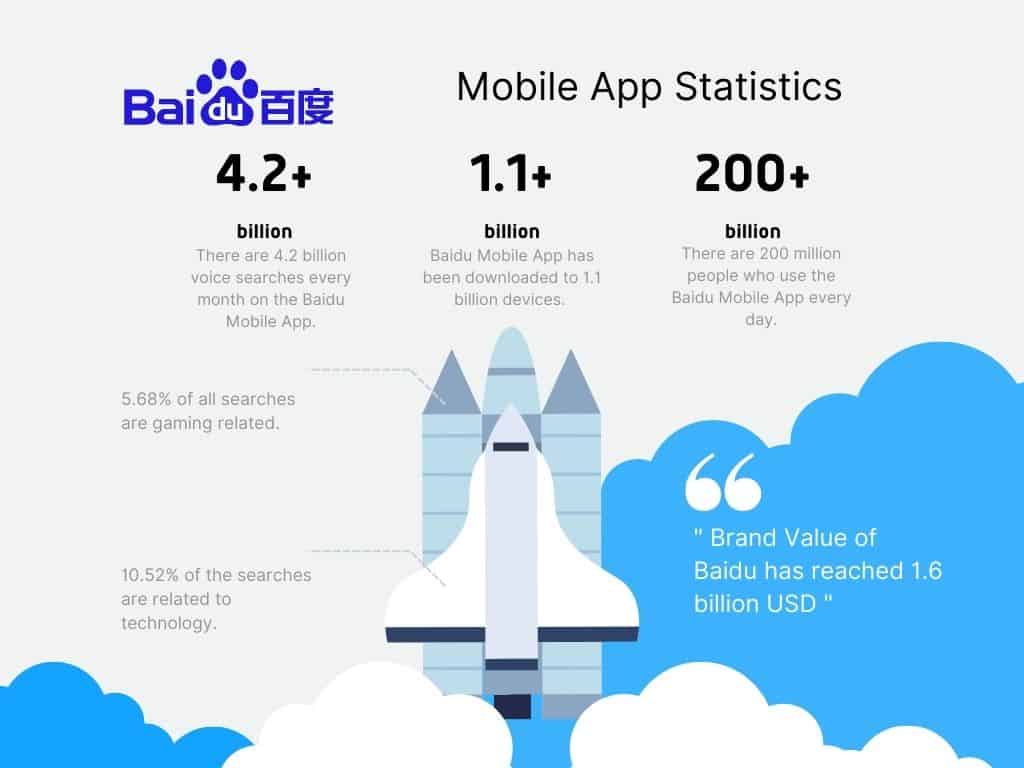
Integration with Chinese social media platforms like WeChat
To optimize your travel website for Baidu, it is crucial to integrate with Chinese social media platforms like WeChat. Here’s why:
Reach Chinese consumers
WeChat is the most popular social networking platform in China, with over 1 billion monthly active users. By establishing a presence on WeChat, you can effectively connect with Chinese consumers and promote your travel services.
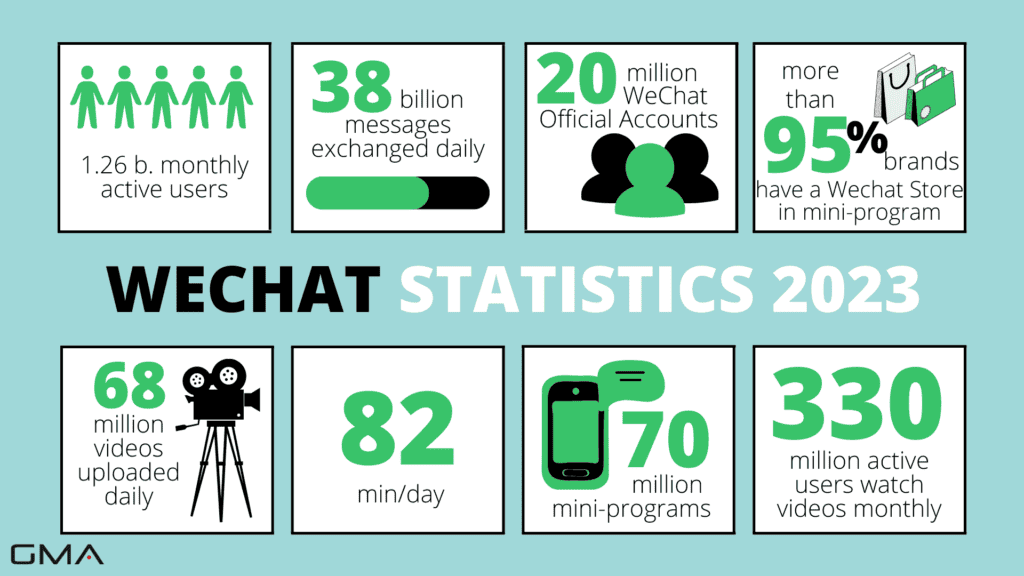
WeChat is not just limited to individual users; it also serves as a valuable tool for businesses in the travel industry. Many travel agencies, hotels, and airlines have official accounts on WeChat to engage with potential customers and offer exclusive deals.
Baidu integration
Both Baidu and WeChat are integrated platforms, meaning that content from WeChat can be indexed by Baidu search engine, increasing your visibility in Chinese search results.
Content promotion
You can use WeChat to share engaging content about your travel offerings, including articles, photos, videos, and even mini-programs that provide interactive experiences for users. This helps to generate interest and attract more visitors to your website.
Building brand loyalty
With features like chat groups and subscription accounts, you can foster a community of loyal followers on WeChat who are interested in your travel services. This allows for direct communication with potential customers and provides opportunities for personalized promotions or customer support.
What are the Best Baidu SEO Strategies?
Implementing Baidu SEO strategies is crucial for increasing your travel company’s visibility on China’s leading search engine. Discover advanced tactics, keyword research techniques, and content marketing strategies tailored to Chinese culture.
Boost your rankings and attract more Chinese tourists by optimizing your website for Baidu today!
Conduct keyword research
To improve your Baidu SEO, conducting thorough keyword research is crucial. Here are some important steps to follow:
Use Baidu’s Index tool
Baidu’s Index provides accurate data on search trends, helping you identify popular keywords for optimization.
Focus on Pinyin and Simplified Chinese characters
Incorporating Pinyin (transliteration of Mandarin Chinese) and Simplified Chinese characters in your keywords can boost your Baidu SEO efforts.
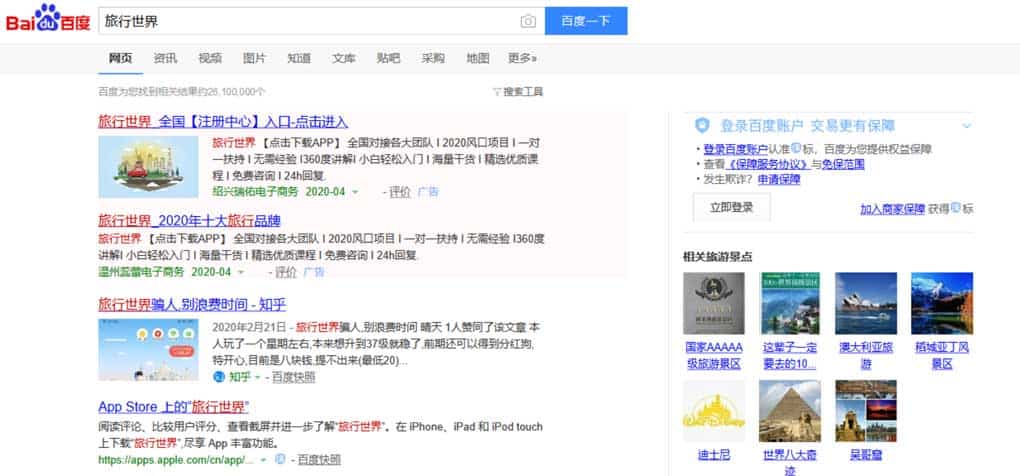
Optimize meta tags
Ensure that your meta keywords and meta descriptions include relevant keywords related to your travel business. This will enhance your visibility in Baidu’s search results.
Consider ranking factors
Understand the various ranking factors that affect Baidu’s search algorithm. This includes factors like website performance, user experience, and backlink quality.
Target long-tail search terms
Long-tail keywords are longer and more specific phrases that can attract targeted traffic to your website. Optimize your content with relevant long-tail keywords to improve your chances of ranking higher on Baidu.
Analyze search trends
Keep an eye on the latest search trends in the travel industry in China. By aligning your keyword strategy with these trends, you can stay ahead of the competition and attract more Chinese tourists.
Focus on building powerful backlinks
Baidu values links to and from Chinese websites more than foreign sites. Therefore, it is crucial to prioritize getting backlinks from reputable Chinese websites related to the travel industry.
Building strong backlinks requires high-quality content that attracts attention and encourages others to link back to your website. Invest in creating valuable and engaging content that resonates with your target audience.
When linking internally within your website, remember to use URLs that contain relevant keywords for better optimization on Baidu search results.
Anchor text, or the clickable text in a hyperlink, plays a role in search engine rankings. Choose anchor text that accurately reflects the linked page’s content and includes relevant keywords.
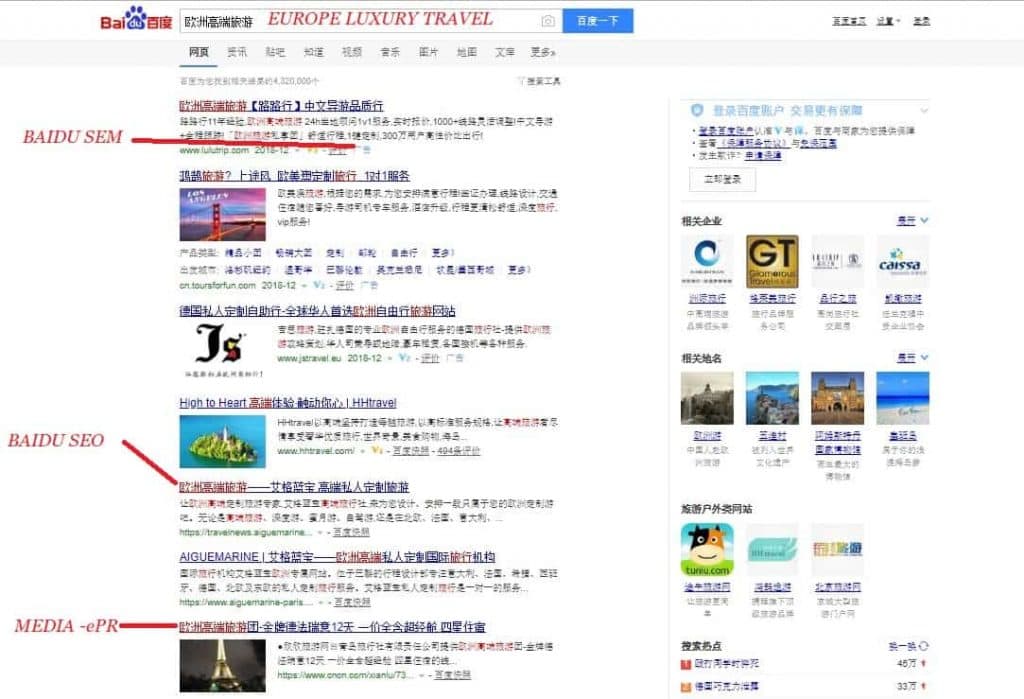
Baidu paid advertising options
We highly recommend utilizing Baidu’s paid advertising options to drive conversions and increase website traffic for your travel company. Baidu PPC (pay-per-click) is a result-driven channel that allows you to specifically target the Chinese market, ensuring that you reach potential travelers and tourists.
By understanding Chinese consumer behavior and the preferences of your target audience, you can optimize your campaigns for maximum impact. Integrating Baidu PPC with comprehensive SEO strategies will further enhance your visibility and overall marketing efforts.
It’s important to note that navigating the complexities of Baidu advertising and SEO may require the expertise of Baidu marketing professionals or agencies who understand the nuances of this platform.
Baidu PPC offers numerous benefits for travel companies in reaching their desired audience in China. With its targeted approach, you can ensure that your ads are seen by people who are genuinely interested in what you offer.
This means higher conversion rates and increased visibility for your brand within the Chinese market. By optimizing your ad campaigns based on consumer behavior insights, keyword research, and continuous campaign monitoring, you can maximize the impact of your paid advertising efforts on Baidu.
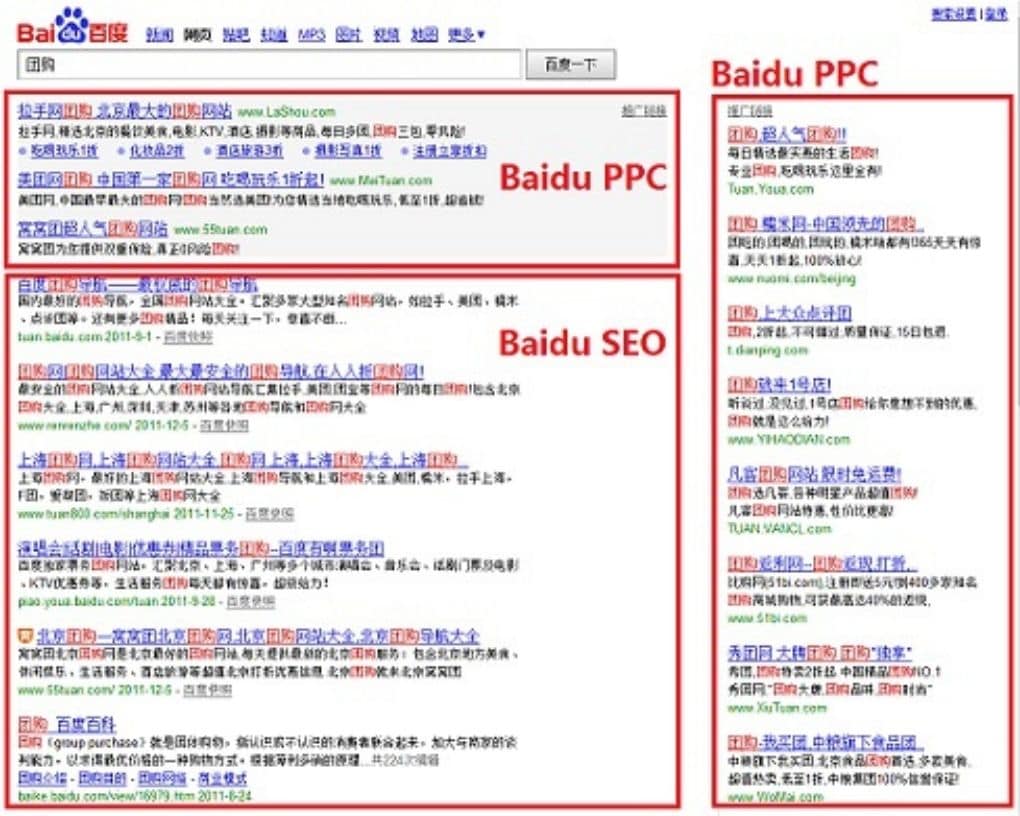
Monitoring and Analyzing Performance
In this section, we will explore the importance of setting up and understanding Baidu Analytics, as well as discuss key performance indicators (KPIs) and metrics specific to the Chinese market.
We will also provide insights into the tools and best practices for continuous monitoring and improvement of your Baidu SEO strategy.
Setting up and understanding Baidu Analytics
We will guide you on setting up and understanding Baidu Analytics and Baidu Webmaster Tools. Here are the key steps and features you need to know:
- Create a Baidu Analytics account: Sign up for a Baidu Tongji account by providing your website information, email address, and contact details.
- Install the tracking code: After signing up, you will receive a JavaScript tracking code. Install it on your website to start collecting data.
- Monitor website traffic: Baidu Analytics provides detailed statistics on the number of visitors to your site, including unique visitors, page views, and bounce rate.
- Track user behavior: Analyze how users interact with your website by examining metrics such as time spent on page, click-through rates, and conversion rates.
- Measure conversion performance: Set up conversion tracking to monitor specific goals or actions completed by users on your site, such as form submissions or purchases.
- Understand visitor demographics: Baidu Analytics offers insights into the demographics of your website visitors, including their age, gender, and location.
- Optimize SEO strategies: Leverage Baidu Analytics data to identify keywords that drive traffic and optimize your content accordingly to improve search engine rankings.
- Monitor performance indicators: Track key performance indicators (KPIs) like search engine rankings, organic traffic growth, and engagement metrics to measure the success of your SEO efforts.
KPIs and metrics specific to the Chinese market
When strategizing your SEO for the Chinese market, it’s crucial to monitor and use KPIs and metrics specific to this unique market. By understanding these metrics, you can optimize your Baidu SEO strategy and make data-driven decisions to drive business growth. Here are some of the key ones:
| Specific KPIs and Metrics | Description |
|---|---|
| Organic Search Traffic | This measures the number of visitors coming to your website through Baidu’s organic search results. High organic search traffic can indicate successful SEO strategies. |
| Baidu Index (Baidu Zhishu) | This Baidu-specific tool helps you understand trends and users’ interest in specific keywords over time. It can guide keyword strategy and content creation. |
| Bounce Rate | It measures the percentage of visitors who navigate away from your site after viewing only one page. A high bounce rate can indicate irrelevant content or poor user experience. |
| Mobile Traffic | With the majority of Chinese users accessing the internet via mobile, it’s critical to monitor mobile traffic. This can indicate the effectiveness of your mobile optimization efforts. |
| Social Media Engagement | China’s social media platforms, like WeChat, are integrated with Baidu. Monitoring engagement on these platforms can provide insights into your brand’s reach and influence. |
| Backlinks | Backlinks from other reputable Chinese websites can improve your Baidu ranking. Monitor this metric to understand your site’s reputation and authority in the Chinese market. |
These are just few of the relevant and specific KPIs and metrics to consider for the Chinese market. Tracking these on a regular basis is fundamental for shaping effective Baidu SEO strategies.

Tools and best practices for continuous monitoring and improvement
In order to continuously monitor and improve your Baidu SEO performance, you need to utilize the right tools and adopt best practices. Here are some essential tools and practices to consider:
- Baidu Analytics: Set up Baidu Analytics to gain insights into website traffic, user behavior, and conversion rates specific to the Chinese market.
- Website Ranking Tracking Tools: Use tools like Rank Tracker to regularly monitor your website’s ranking on Baidu search results pages (SERPs). They are similar to Google Search Console.
- Keyword Research Tools: Conduct thorough keyword research using tools such as Baidu Index or Keyword Planner to identify relevant keywords for optimization.
- Backlink Analysis Tools: Utilize backlink analysis tools like Ahrefs or Majestic to assess the quality and quantity of backlinks pointing to your website.
- Social Media Monitoring Tools: Monitor social media platforms like WeChat using tools like WeChat Index or Weibo Index to track brand mentions and engagement.
- Performance Benchmarking: Compare your website’s performance against competitors using market intelligence tools like SimilarWeb or SEMrush.
- User Experience Optimization: Improve website load speed, mobile responsiveness, and navigational structure for a smoother user experience.
- Conversion Rate Optimization (CRO): Analyze conversion rates on different landing pages and implement CRO strategies such as A/B testing or heatmaps.
Frequently Asked Questions about Baidu SEO
Curious about Baidu SEO for your travel company? Find answers to common questions like creating a Baidu account, indexing pages, using SEA/PPC, and more. Discover valuable insights to boost your online presence in China’s digital landscape.
How to create a Baidu account for SEO
To create a Baidu account for SEO, you’ll need to follow these simple steps. First, visit the Baidu website and look for the “Sign Up” button. Click on it to start the registration process.
Next, fill in your personal information such as your name, email address, and phone number. You’ll also need to create a password for your account. Once you’ve entered all the required details, click on the verification box to confirm that you’re not a robot.
Finally, submit your registration form and wait for an email from Baidu with instructions on how to verify your account. Creating a Baidu account will give you access to valuable SEO tools and help you make the most of your online presence in China’s market.
Indexing pages on Baidu
Baidu uses its Index tool to analyze and categorize web pages based on relevancy and quality.
By submitting your website to Baidu’s Webmaster Tools, you can help speed up the indexing process. It’s important to note that optimizing your website with relevant descriptions and high-quality content is essential for achieving a higher ranking on Baidu.
Additionally, staying up-to-date with search trends and user preferences will give you an edge over the competition. So focus on creating valuable content that aligns with Baidu’s algorithm and user expectations, and leverage their tools to enhance your website performance and visibility.
How to handle censorship or content restrictions
To handle censorship or content restrictions on Baidu, it’s important to understand the platform’s strict policies. Baidu enforces censorship laws that prohibit anti-government speech, adult material, gambling content, and culturally sensitive topics.
To comply with these regulations and avoid penalties, make sure your content does not include explicit words or attacks on the Chinese government. Additionally, be cautious about duplicate content as Baidu penalizes websites more heavily for this than other search engines.
Language usage is also crucial in Baidu SEO since the search engine prioritizes content in Chinese. It’s vital to be aware of these restrictions and tailor your content accordingly to ensure compliance and improve visibility on Baidu.

Specifics on payment and invoicing within Baidu services
The details about specific payment methods and invoicing options are frequently asked questions when it comes to Baidu SEO. To get the full picture of the payment and invoicing process within Baidu’s services, it is recommended to refer to their official documentation or reach out to their customer support.
They will be able to provide you with the necessary information related to travel industry payment services and tourism business invoicing within the platform.
Cultural insights to avoid common misunderstandings or missteps
China has its unique digital landscape, and what works for Google may not necessarily translate well on Baidu.
It’s essential to tailor your approach to the Chinese market by considering their search behavior and preferences. Keep in mind that Baidu dominates China’s search engine market with billions of searches per month, so it’s important to adapt your strategies accordingly.
Additionally, there are specific legal and regulatory considerations that foreign businesses need to be aware of when optimizing their websites for Baidu. The Great Firewall of China can also pose challenges in terms of content restrictions and censorship.
By being culturally sensitive and understanding these factors, you can navigate the intricacies of Baidu SEO more effectively and increase your chances of success in reaching Chinese tourists.
To ensure a seamless experience for Chinese users, localization is key. This includes using simplified Chinese characters, optimizing website design for mobile devices (as most searches occur on mobile), and integrating with popular social media platforms like WeChat.
Key Takeaways
- Baidu SEO is crucial for travel companies looking to reach Chinese tourists, as Baidu is China’s leading search engine with over 72.9% market share.
- Understanding the differences between Baidu and Google’s search engine results pages (SERPs) is essential for developing an effective SEO strategy in China.
- Localization and language processing are key factors in optimizing travel websites for Baidu, as Chinese consumers prefer content in their native language.
Contact Gentlemen Marketing Agency for the Best Baidu SEO Strategy!
As Baidu SEO agency in the travel industry, you can rely on our expertise at GMA Agency in China to help optimize your Baidu SEO strategies for reaching Chinese tourists. Our services cover e-commerce, search engine optimization, advertising, and social media marketing on popular platforms like Weibo and WeChat. We have experience with Chinese search engines and we know how to optimize and promote your Chinese website for Mainland China.

Whether you need assistance with Baidu PPC ads or achieving top rankings in Baidu for important keywords, we have the knowledge and experience to guide you toward success.
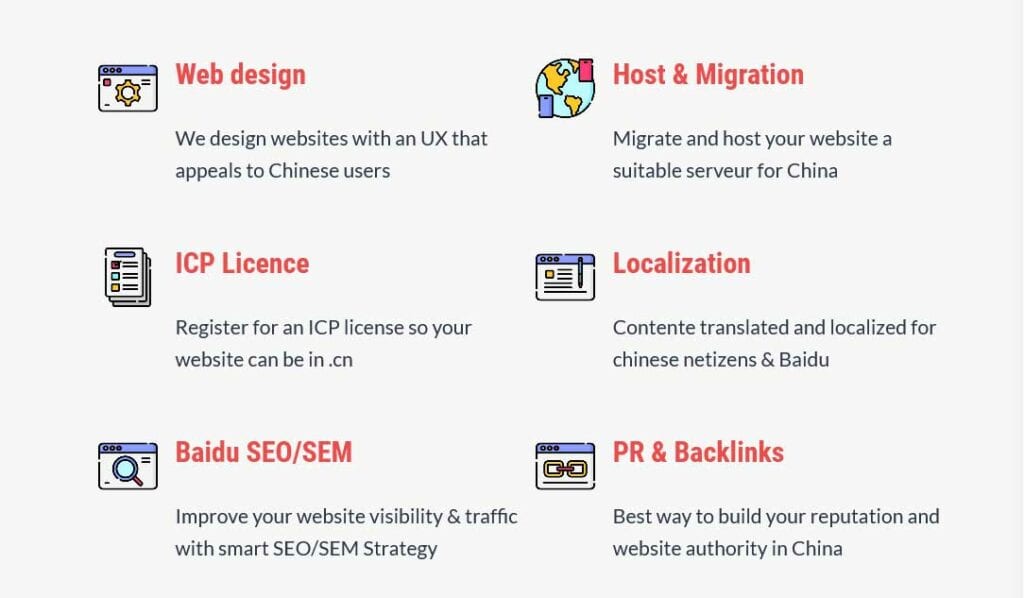
Don’t hesitate to contact us today for expert support tailored to your specific needs.
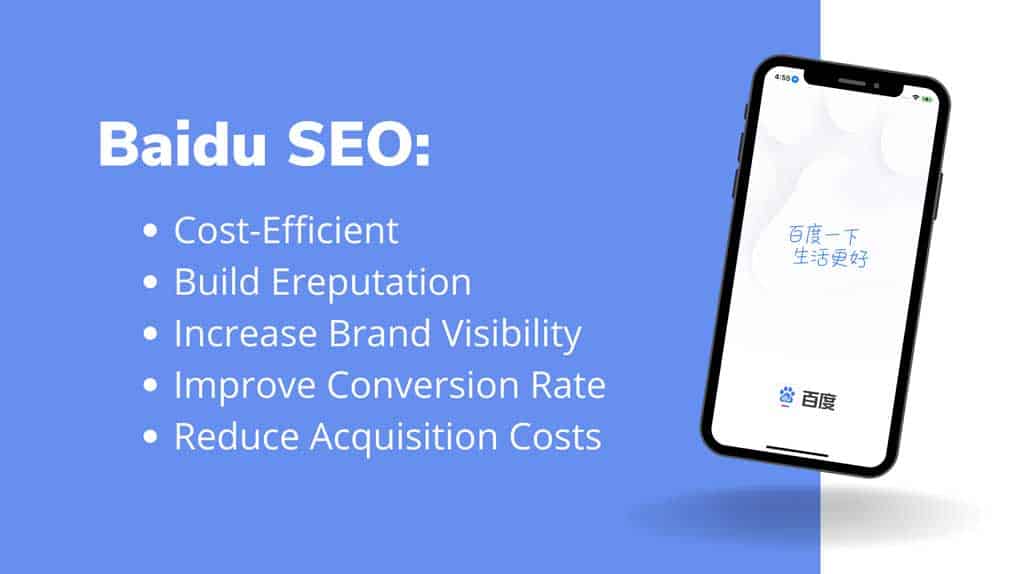



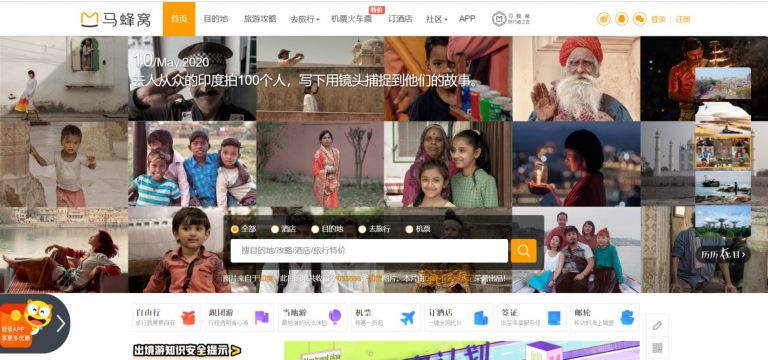


How to in list websites in Baidu? Can you guide please